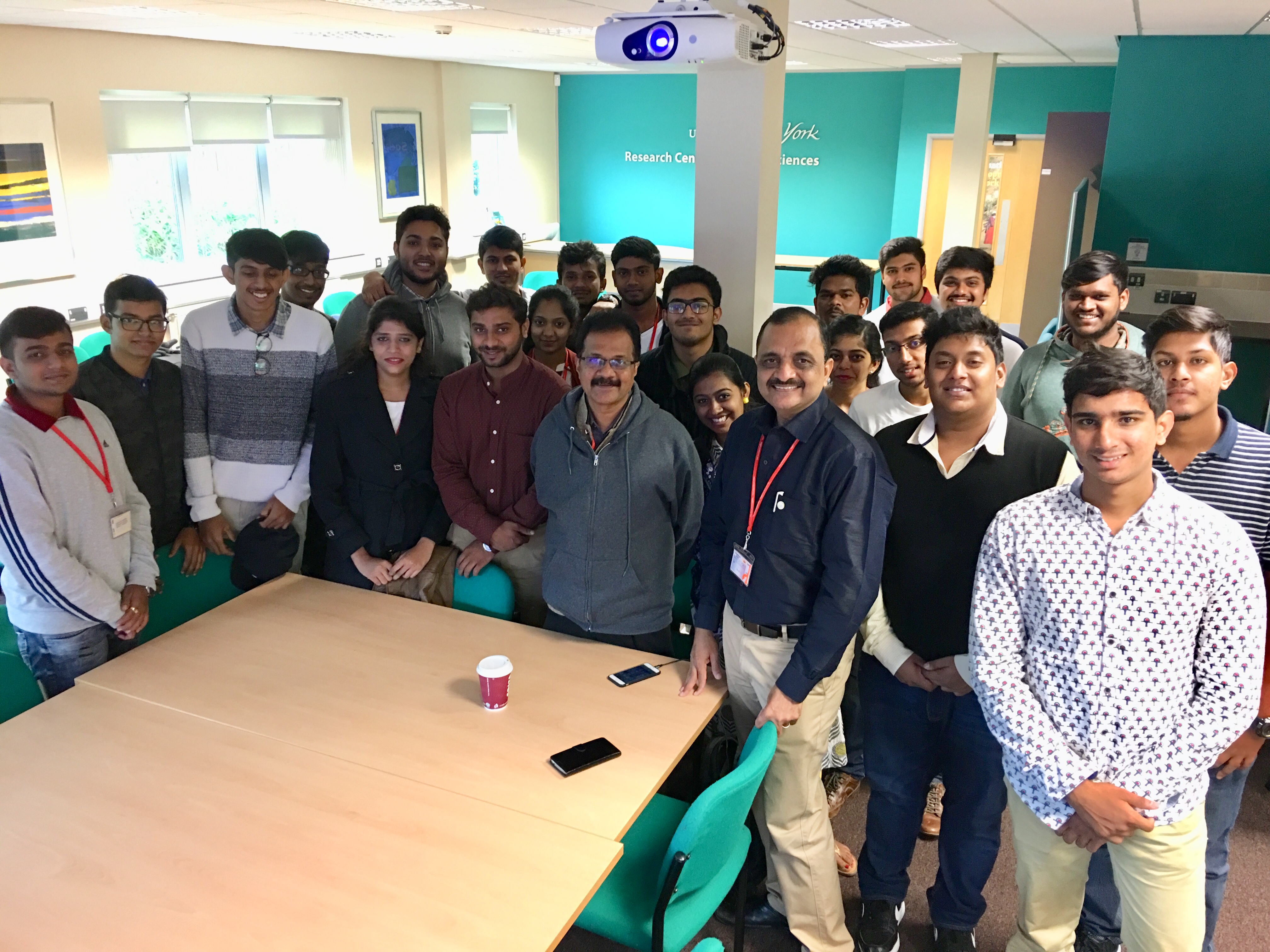International Relations
One of the universities with which I have an association is York and last week I was invited to deliver a guest lecture to a group of visitors from the CMR University in Bangalore. CMRU specialises in technical, health, management, life sciences and other allied sectors of higher and professional education, and the group comprised students from a number of disciplines and 2 members of the faculty. They had a varied week on and around the campus aimed, as much as anything, at cultural exchange. My part of the programme was a 90-minute presentation on a range of sustainability-related subjects, including risk, waste, trade-offs, consumer attitudes and CSR. The group were attentive and engaged and unfailingly polite, even tolerating the seasonally grim weather with very good grace.

I took the opportunity to gauge their views on a number of issues, as I often do with audiences from the UK, including how they define the term ‘sustainability’, the UN SDGs, what they see as the most significant risks facing humanity and how responsibility for addressing sustainability challenges should sit across various sectors of society. Various recently-published surveys have shown regional differences in the priorities that people place on the various challenges facing global society, and in part the group’s responses reflected some of the specifics of the Indian economy and culture. There were commonalities with Western responses too, though, not least in their view of the relative parts that should be played by government, business, civil society and private individuals. It was very interesting from my perspective to learn a little more about how other cultures view sustainability; of course 25 people aren’t going to be representative of a nation of more than 1.3 billion but it always helps to see the world from a different angle.